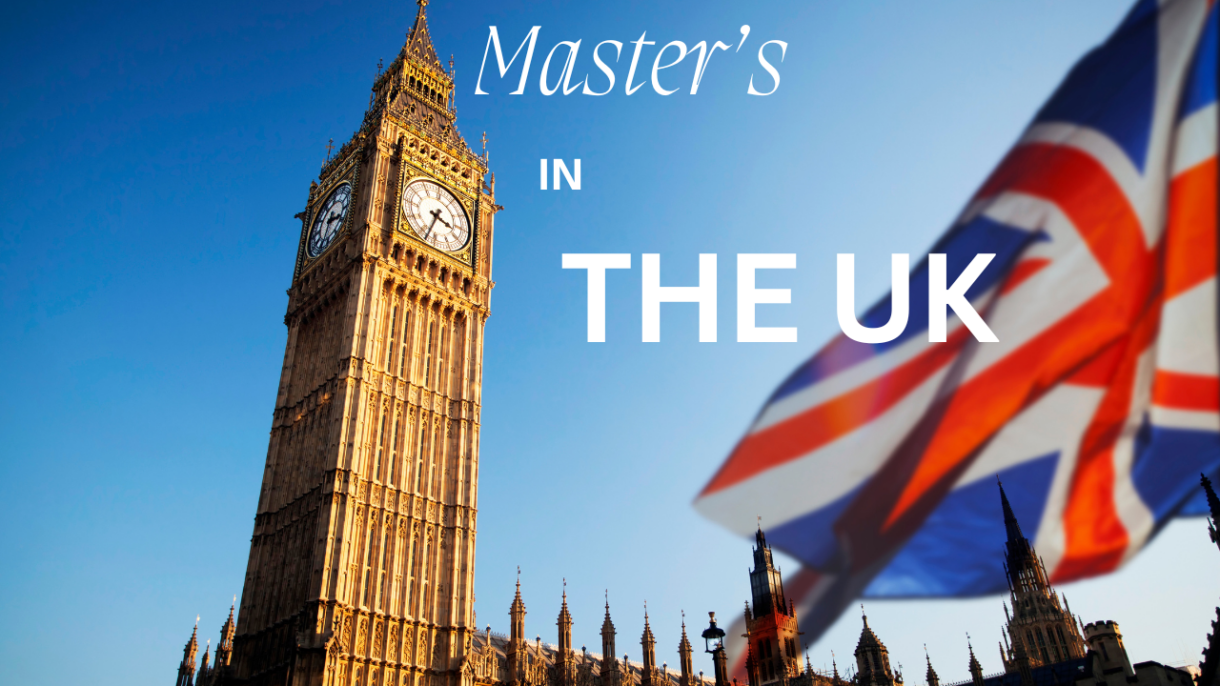
Why Should You Study a Master’s Degree in the UK?
The pursuit of a Master’s degree in the UK will open doors to top-quality education, career development, and cultural opportunities. With top universities, cutting-edge research, and internationally recognized degrees, the UK is an ideal destination for postgraduate education.
Benefits of Getting an MBA from the UK
1. World-Renowned Universities
The UK is home to some of the top universities in the world, including Oxford, Cambridge, and Imperial College London.
2. Shorter Course Duration
Unlike many countries where master’s degrees take two years to complete, UK master’s degrees usually last only one full year, which can save students time and money.
3. Diverse Specializations
From STEM fields to the humanities, the UK offers a wide range of master’s degrees to meet different career objectives.
4. Strong Industrial Connections
Many UK universities have agreements with major companies, providing important networking opportunities and job prospects.
5. Opportunities for Post-Study Work
The Graduate Route visa permits international students to remain in the UK for two years after graduation to find work or gain experience.
Best Universities for Master’s Degrees in the UK
- University of Oxford – Ideal for research-intensive programs.
- University of Cambridge – Best for science and business.
- Imperial College London – Great for technology and engineering.
- London School of Economics (LSE) – Perfect for political science and economics.
- University of Edinburgh – Renowned for medical sciences and humanities.
Admission Requirements for a Master’s Degree in the UK
General Eligibility Criteria
- A bachelor’s degree with a competitive GPA.
- English proficiency test scores (IELTS or TOEFL).
- Statement of Purpose (SOP) detailing career objectives.
- Recommendation letters from professors or employers.
IELTS/TOEFL Score Requirements
Most UK universities require:
- IELTS: 6.5 – 7.5
- TOEFL: 90 – 110
Application Deadlines
- Fall Intake: September – October
- Spring Intake: January – February
Cost of a Master’s Degree in the UK
Tuition Fees
- Humanities & Social Sciences: £12,000 – £20,000 per year
- Engineering & Technology: £15,000 – £30,000 per year
- Medicine & Business: £20,000 – £50,000 per year
Living Expenses
- Accommodation: £500 – £1,200/month
- Food & Utilities: £300 – £500/month
- Transport: £50 – £150/month
Scholarships for Master’s Degrees in the UK
- Chevening Scholarships – Fully funded for exceptional international students.
- Commonwealth Scholarships – Available for students from Commonwealth nations.
- GREAT Scholarships – UK government-funded scholarships for international students.
- University-Specific Scholarships – Many UK universities offer merit-based scholarships.

How to Apply for a Master’s Degree in the UK
1. Research Programs & Universities
Use official university websites to compare programs, tuition fees, and rankings.
2. Prepare Required Documents
Ensure you have academic transcripts, English proficiency test scores, SOP, and reference letters ready.
3. Apply Online via UCAS or University Portals
Some universities accept applications through UCAS Postgraduate, while others have their own application portals.
4. Apply for a Student Visa
- Tier 4 (General) Student Visa is required for courses longer than six months.
- Visa Processing Time: 3 – 6 weeks.
5. Arrange Accommodation & Travel
Book student housing early and plan travel arrangements in advance.
Post-Study Job Opportunities in the UK
Graduate Route Visa
- Allows international students to work in the UK for up to two years after graduation.
- No job offer required at the time of application.
Top Sectors Hiring Graduates
- Finance & Banking – London is a global financial hub.
- Technology & Engineering
- Healthcare & Pharmaceuticals
- Marketing & Management
6 Common Challenges of Getting a Master’s Degree in the UK
- High Tuition & Living Costs – Studying in cities like London can be expensive.
- Visa & Immigration Issues – Tier 4 visa applications have strict requirements.
- Academic Pressure – UK master’s programs are rigorous and require strong time management.
- Social Adjustment – Adapting to a new academic and social environment can be challenging.
- Scholarships & Funding – Financial aid is competitive and limited.
- Career Opportunities Post-Graduation – Securing a work visa after studies can be difficult.
13 Strategies for Master’s Degree Success in the UK
- Start planning early – Research universities and application deadlines.
- Choose the right course – Align your program with career goals.
- Apply for scholarships – Look for university-specific and government-funded opportunities.
- Understand visa requirements – Ensure you meet UK visa conditions before applying.
- Manage your finances – Budget wisely for tuition, rent, and daily expenses.
- Secure accommodation early – University housing fills up fast.
- Improve your English – Strong communication skills help in academics and social life.
- Network with experts – Connect with professionals, alumni, and industry leaders.
- Utilize university resources – Make use of libraries, career services, and research tools.
- Balance studies and life – Avoid burnout by maintaining a healthy routine.
- Gain work experience – Part-time jobs and internships boost employability.
- Prepare for cultural differences – Join student groups for easier adaptation.
- Plan for post-study visas – Explore the Graduate Route for job opportunities in the UK.

Case Study: How a Master’s Degree in the UK Transformed a Student’s Life
Meet Sarah: From Student to Global Consultant
Sarah, an international student from India, pursued an MBA in Business Analytics at Imperial College London. Initially facing financial struggles, she secured a Chevening Scholarship. With career services and networking, she landed an internship at a top consulting firm. After graduation, she used the Graduate Route Visa to stay in the UK and now works as a consultant at a multinational firm.
Statistics & Data on Master’s Degrees in the UK
- 605,000+ international students studied in the UK in 2023 (UKCISA Report 2024).
- The UK ranks 2nd globally for higher education quality (QS World Rankings 2024).
- 92% of UK master’s graduates are employed or in further study within 6 months (HESA 2024).
- The average cost of a UK master’s program is £12,000 – £30,000 per year.
How LetzStudy Helped Three Students Reach Their Master’s Goal in the UK
Sharath Shetty: Overcoming Academic Gaps & Finding the Right University
Sharath, passionate about AI, had lower academic grades and was unsure about university acceptance. How LetzStudy Helped:
- Created a customized university list based on his profile.
- Assisted in crafting a strong SOP to highlight his strengths.
- Provided application strategies to maximize his chances. Result: He secured admission to Brunel University London for an MSc in Artificial Intelligence.
Rajath Gowda: Scholarship & Financial Planning
Rajath worried about tuition costs and lacked financial aid. How LetzStudy Helped:
- Identified suitable scholarships.
- Assisted in preparing scholarship applications.
- Helped secure part-time job and post-study visa. Result: He received a £5,000 scholarship from the University of Leeds.
Yash S K: Securing a UK Student Visa
Yash struggled with the UK visa process. How LetzStudy Helped:
- Provided step-by-step visa guidance.
- Conducted mock interviews for credibility tests. Result: He successfully obtained a UK student visa and is now studying at the University of Glasgow.
Your Study Abroad Success Starts Here!
If you’re considering pursuing your Master’s degree in the UK, LetzStudy is here to help—just like we did for Sharath, Rajath, and Yashas.
Call LetzStudy today for a FREE consultation! Get expert guidance on university selection, visas, scholarships, and more.
Contact Us:
- Phone: +91 9380486921
Universities regularly update their fees, eligibility, and policies. While we aim to keep this content accurate, readers should always check official sources for the latest information.
For more information, connect us on LinkedIn, and for daily updates, follow us on Instagram.

